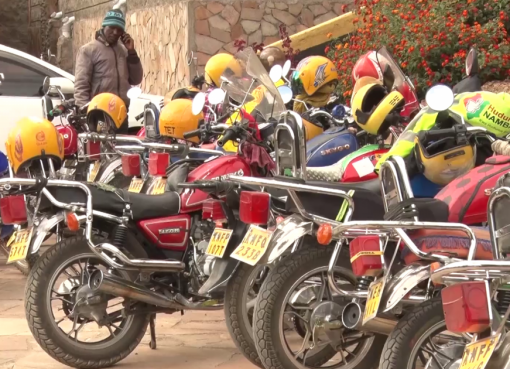Jitters are rising among Lamu residents over the prospect that the county could lose a large chunk of its traditional fishing grounds because of the Kenya-Somalia maritime territorial dispute.
Lamu County holds the Kenyan border point to Somalia to the Indian Ocean Republic in Kenya’s South.
The disputed waters is a triangular patch created by projecting the Kenya-Somali border eastwards, eating directly into Lamu’s rich fishing grounds of Kiunga. The territory in dispute is 100,000 square kilometres.
Kenya wants the border to run along parallel latitude south-east of Kiunga while Somalia is pressing for a diagonal line down the Kenyan Coast.
In a government statement Kenya notes that Somalia has since 1979 recognized and respected the maritime boundary between the two countries along a parallel of latitude.
However, in 2014, shortly before filing its case with the Court, Somalia claimed a maritime boundary along an equidistance line, ignoring the 35-year practice of recognizing and respecting the maritime boundary along a parallel of latitude.
Local leaders’ chief among them the Lamu Deputy governor, Abdulhakim Aboud Bwana, who spoke to KNA stated that the county was likely to get hurt by the maritime dispute if Kenya loses its fishing grounds.
“Fishing is the mainstay of Lamu’s economy, and we cannot underscore the value that our traditional fishing grounds holds for the county’s blue economy prospects,” the deputy governor says.
It has been projected by the county government’s fisheries department that Lamu’s blue economy has the potential to deliver 40,000 tonnes of fish annually, which shadows the 2,700 tonnes caught today.
“If Kenya and in the smaller context Lamu loses the maritime waters that it holds to Somalia we could be losing as much as Sh. 7.5 billion worth of income annually,” Lamu’s Fisheries Chief Officer Simon Komu says and tersely adds that it might as well spell doom for the country’s pursuit for a blue economy.
Fishermen who are aware of the ongoing territorial dispute are doubly troubled, having lost the rich Kililana fishing grounds which is now being transformed into the Lamu Port whose construction has disrupted fishing in the area, forcing the fishermen to access deeper fishing waters.
“If we end up losing the Kiunga fishing grounds because of a Kenya-Somalia maritime water dispute many of us will be forced to leave fishing altogether, because we might end up being subjected to the cruelties that our brothers in Migingo are enduring at the hand of Uganda because of maritime water disputes,” Lamu fishermen Association Chairman Somo Bin Somo notes.
He further states that these are troubling times for fishermen in Lamu, who have in the past had to endure a ban on night fishing, a high court ruling that awarded Lamu fishermen Sh. 1.64 billion in compensation for Lamu Port that is yet to be resolved and a sense of foreboding that the Lamu Coal Plant could have on the county’s fishing economy.
Furthermore he adds that the county has offered very little by way of improving prospects of the county’s traditional fishing economy.
Lamu County only spent, Shs. 45 million towards the county’s fishing sector, against a whopping Shs. 3.6 billion annual county budget.
The Lamu fishing industry is just but one sector of Lamu’s and in the bigger context, Kenya’s economy that is under threat from the dispute with the Lamu Port project likely to run into headwinds because of the maritime tussle.
“Unless the maritime dispute is resolved promptly, the Lamu port project might become a white elephant because ships seeking to enter the country’s waters will have a limited or narrow access to the Lamu port,” Lamu Chamber of Commerce branch chairman, Feisal Mirji notes.
He opines that the ships will have to ask the Somalian authorities permission to access “Kenyan waters” which may end up affecting Kenya’s ambitions as the region’s logistical hub.
However, LAPSSET Corporate Communication Officer, Benson Thuita, is more optimistic that the Kenya-Somali maritime tussle will not affect the country’s trans-shipment prospects through the Lamu Port.
“The laws governing Maritime waters and how ships pass through the Indian Ocean or any of the other high seas will see to it that maritime transshipment through those disputed waters is not affected,” Thuita states.
He further notes that Kenya-Somalia relations on the issue will not be affected by the maritime tussle that dates back to 2014.
The tussle began in August 2014 when Somalia sued Kenya at the International Court of Justice at The Hague, Netherlands, for unlawful operations in her maritime territory.
He further denied that Lamu Port was likely to lose business because of the dispute stating that, the project is part of a regional plan to open up previously marginalized areas.
“Ethiopia, Uganda, South Sudan and even Rwanda will benefit from LAPSSET, contrary to belief that the project is likely to stall because of the Kenya-Somali maritime dispute,” he stated.
He further expressed optimism that the two countries were likely to strike a deal rather than allow the dispute to ferment.
Separately, Lamu County Commissioner, Joseph Kanyiri stated the country was unlikely to surrender the territory to Somalia and urged Lamu residents to be patriotic in the country’s pursuit to guard its borders even at sea.
“We might even call on Lamu people to hold peaceful demonstrations to show the gravity of how they will be affected if Kenya loses its maritime waters to Somalia,”Kanyiri says.
He concludes that with Kenya, just realizing the immense potential for its sea waters, not only in fishing but also in trans-shipment and oil and gas exploration that it is highly unlikely for the country to find itself on the backpedal in negotiating an amicable resolution to the maritime dispute.
By Amenya Ochieng




